wrestling / Columns
The Magnificent Seven: The Top 7 Wrestling Announcers
Play-by-play men. Color commentators. Analysts. Broadcast journalists. When it comes to professional wrestling, the lines blur but the truth remains—the people calling the action of a wrestling match add to the overall presentation. They call the moves. They weave in layers of narrative. They provide historical context. They keep us engaged when the in-ring action isn’t getting the job done on its own merits and they transform great matches into the stuff of legend via epic accompaniment.
The descriptions above depict wrestling announcing at its best, and I’ll be the first to concede that it isn’t always good. Critics tend to blast the highest profile announce team of Michael Cole, Booker T, and JBL for getting distracted from the in-ring action and taking away from the wrestlers. I’m inclined to agree.
Just the same, when announcing is working the way it should–to enhance story told in the ring—it can be a real difference maker in elevating the product. In recognition of that ideal, this week, I’m looking at wrestling’s top seven announcers.
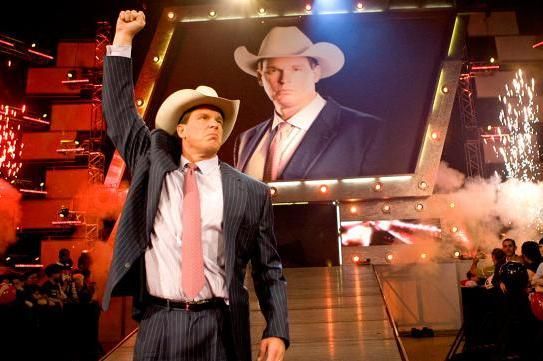
#7. JBL
At his worst, like he seems to be most of the time these days, JBL can be distracted and distracting, vacillating between putting over the main event angle and entertaining himself at the expense of whatever is actually going on in the ring. The directions he’s getting in his headset from backstage surely have a hand in his less than stellar performances but, regardless, I have no problem admitting that today’s JBL does not have a place on this countdown.
But when Bradshaw was at his best, particularly during his initial broadcast run alongside Michael Cole on Smackdown, he offered the smart, off-beat voice of a grizzled veteran that not only pushed modern-day performers, but helped sell the in-ring action as sport. My favorite JBLism, paraphrased—that sometimes you have to put yourself in someone else’s body and drive it like you stole it—was a prime example of how talking about performers as serious athletes who needed to take chances, go outside their comfort zones, and do the unthinkable in order to be great, still stands out to me as the voice of a former champion sincerely cheering on the stars who succeeded him. And when JBL was playing that role at his best, and Michael Cole was sticking to straight play-by-play, the two produced the perfect soundtrack some of Smackdown’s greatest moments.
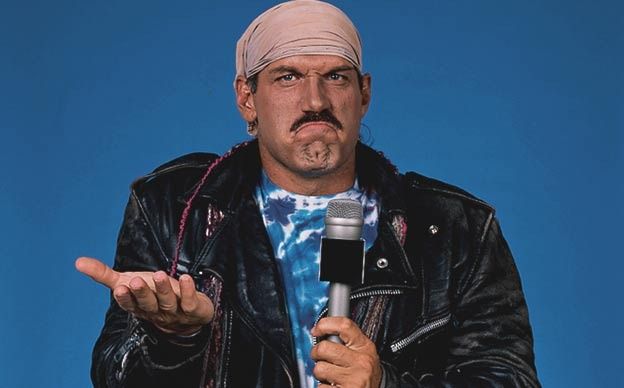
#6. Jesse Ventura
Opinions seem to diverge on the quality of Jesse Ventura’s broadcast work, but I think I’ll always remember and admire his commentary, first and foremost, for his sense of logic. Sure, was most often cast as a heel apologist. Just the same, paired with Vince McMahon and Gorilla Monsoon in the WWF, he was more often than not the one to keep them honest—to call them on their hypocrisy when Hulk Hogan engaged in heelish behaviors like biting and scratching that they had earlier decried when the bad guys indulged in them. Ventura recaptured a lot of his 1980s commentary magic when he guest GMed an episode of Raw in 2009 and demanded that he and McMahon populate the broadcast booth again for the main event.
In addition to Ventura’s most famous WWF work, he had an underappreciated WCW broadcast run from 1992 to 1994, when I always felt that he and Tony Schiavone paired to offer one of the most balanced and engaging announce teams of their era.
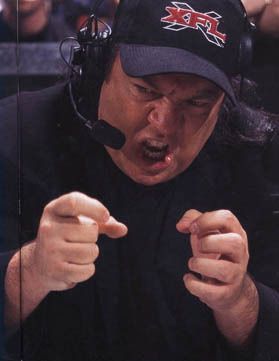
#5. Paul Heyman
Paul Heyman falls into the long line, and now dying breed of profoundly influential wrestling personalities who were not, themselves wrestlers (and before you jump on me, yes, Heyman did have a handful of matches over the years, but I still don’t find it reasonable to consider him a wrestler per se). When fans look back on Heyman’s career, he’ll probably be best remembered as the man behind ECW, and secondarily as the greatest manager of his era. And while his work as an announcer would probably place a distant third in terms of Heyman’s most important roles, he absolutely deserves a place in the discussion of wrestling’s best broadcast men.
Heyman’s highest profile run on commentary came with the WWF, just after Heyman left ECW (and shortly before the promotion shutting down altogether). When Jerry Lawler walked from the WWF, Heyman filled his seat next Jim Ross. Heyman was a good talker and knew wrestling, but perhaps his most important quality of all at this stage was a complete lack of concern for what management thought of him, which led to commentary that was edgy and often funny, but more than anything, committed to putting over the storylines of the day. Heyman’s WWF run at the announce table included calling WrestleMania 17 and the length of the Invasion storyline, as a mouthpiece for The Alliance.
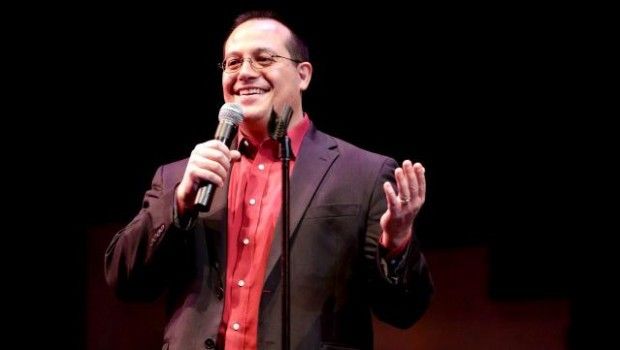
#4. Joey Styles
It’s unfortunate that a lot of mainstream wrestling fans will only remember Joey Styles for his work as the Raw play by play guy alongside Jerry Lawler. While that run did culminate in a very good worked shoot promo, and he was perfectly serviceable in the role, that period in Styles’s career showed him at his most watered down and not particularly emotionally invested.
We can contrast that with his work with ECW—when he clearly believed in his work and was given a long leash. Styles was the voice of a unique and innovative brand who proved particularly adept at calling action on the fly, for several spans sitting all alone at the commentator’s table where he both calling technical wrestling moves and told stories. Styles and ECW were a perfect match for one another, and I don’t know that he would crack the top five had he not had the opportunity to work with that specific brand at that specific time. Fortunately, he did get that chance, ande made the most of it.
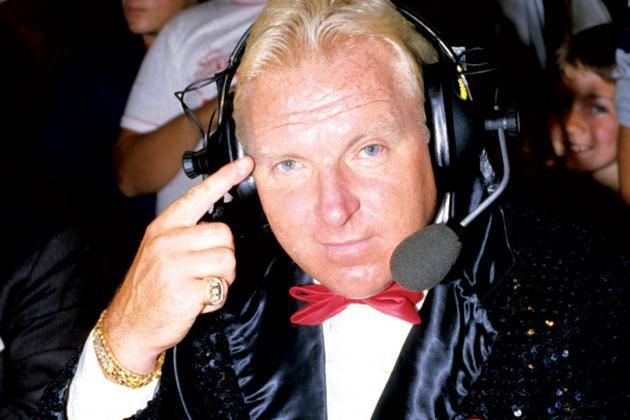
#3. Bobby Heenan
Many a heel personality has tried his hand at commentary. For my money, none have consistently been able to compare with Bobby Heenan.
Heenan was the screwball to Vince McMahon’s straight man act; the over-the-top heel to balance Gorilla Monsoon and Roddy Piper’s over-the-top face personalities. And down in WCW, he proved to be an unlikely voice of reason—sure, he was a heel, but he was also an everyman who recognized when WCW was in over its head against the NWO and fled the broadcast table, and who finally had enough when asylum inmate Brian Pillman went after him at ringside.
But let’s focus on Heenan’s WWF work. After an extended run as the promotion’s top manager, he settled into the role of “broadcast journalist,” and most notably as an advocate for Ric Flair. Heenan’s greatest performance as a commentator came on what was arguably Flair’s greatest night as a WWF/E in-ring performer—at the 1992 Royal Rumble, at which Heenan sold The Nature Boy’s desperation, fear, and exhaustion over commentary every bit as well as Flair himself in the ring, en route to an epic heel victory. The night made Flair as a WWF main eventer, as he ran the gauntlet against stars like Roddy Piper, Hulk Hogan, Randy Savage, and Sid Justice, as well as a bevy of mid-carders. Flair sold for every one of them like the great NWA traveling champ he had been, and Heenan masterfully sold every altercation as a legitimate threat to Flair’s battle royal run.
Heenan was one of wrestling’s all-time great talkers, and the color commentator role fit him like a glove.
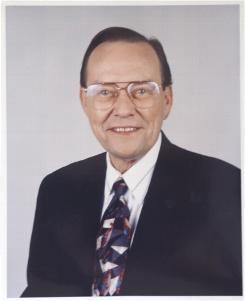
#2. Gordon Solie
In an time when wrestling was still taken reasonably seriously as a professional sport, and as the business settled into weekly episodic television, Gordon Solie was the voice of the squared circle. He established himself not through hyperbole or shouting, but rather by speaking calmly and seriously, and selling the action in the ring above all other things.
Solie did play by play for the Florida territory, and perhaps most famously, Georgia Championship Wrestling and WCW. He was known for pioneering the term “pier six brawl,” for calling a bloody visage a “crimson mask,” for his iconic set up for the Ric Flair-Terry Funk I Quit Match in which he summarized the crux of the bout: “Five letters, two words: I quit,” and, of course, his signature choice to pronounce suplex “soo-play.”
More often than not, serious wrestling broadcasters have cited Solie as their role model and inspiration. He was a one of a kind commentator who I could absolutely understand arguments for placing at number one. But in my book, that spot in the countdown is reserved for another man.
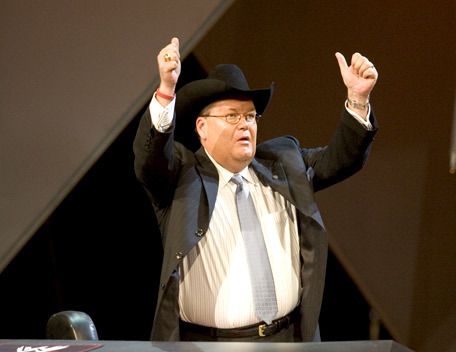
#1. Jim Ross
Jim Ross started his career in pro wrestling as a referee. Before long, he was sitting under Bill Watts’s learning tree down in Mid-South where he cut his teeth as a play-by-play commentator. He’d progress to Jim Crockett Promotions and WCW, establishing himself, even then, as an easy choice for one of wrestling’s top-five announcers of all time.
But when WCW elected to promote Eric Bischoff rather than Ross to the role of Executive Vice President, they paved the way for Ross’s departure to the WWF. He would continue his very good work from the broadcast table, leading up to The Attitude Era.
There were so many unique elements that contributed to the success of The Attitude Era. It was the WWF appealing to the children of the 1980s who had loved Hulk Hogan with a rebel all but designed to appeal to them, in the form of Steve Austin. It was acts like The Rock and DX catching fire. It was harsher language, more scantily clad women, and bigger matches on regular TV broadcasts. But I’d argue one of the most underrated keys to the WWF’s success in this period was Jim Ross, and particularly his partnership with Jerry Lawler, who had entered his peak years as a broadcaster. Lawler was an irreverent dirty old man, who also happened to have credentials of a grizzled wrestling veteran. And Ross was the rugged Southern voice of experience, who sold every dramatic situation as if it truly were historic.
Tyson and Austin! Tyson and Austin!
The Austin Era has begun!
God as my witness, he is broken in half!
These are but a few of the lines that immortalized moments during a period when Ross established himself as the voice of one of wrestling’s most iconic eras.
Particularly as a broadcaster, Ross underwent a rollercoaster relationship with Vince McMahon who was never entirely comfortable with JR’s southern drawl, the way in which Bells Palsey affected his physical appearance, or his instinct for calling maneuvers in the ring over the brand of storytelling McMahon prioritized. That Ross would enjoy such an iconic run despite all of this, and the fact that men like The Undertaker and Triple H would specifically request that Ross come back to call their biggest matches in the twilight of their full time careers says everything about how well respected and ultimately irresistible Ross truly was in the world of professional wrestling.
What were your favorite wrestling announcers? Jerry Lawler? Tony Schiavone? Michael Cole? Jim Cornette? Let us know what you think in the comments section.
Read more from Mike Chin at his website and follow him on Twitter @miketchin.
More Trending Stories
- Backstage Update on WWE’s Plans for WrestleMania 41, Possible Move to March or May
- Tony Khan Addresses CM Punk’s Claims That He Paid for His Medical Care for Torn Triceps Injury
- Eric Bischoff Wouldn’t Put Money On Chances Of Vince McMahon Starting A New Wrestling Company
- Oklahoma Athletic Commission Gives AEW ‘Warning’ Over Nyla Rose Match, Rose Responds







